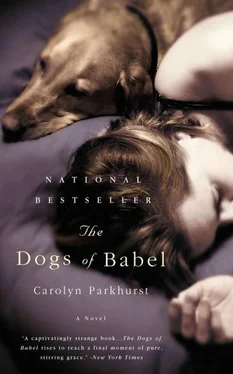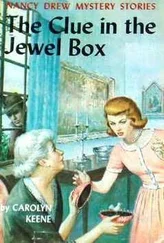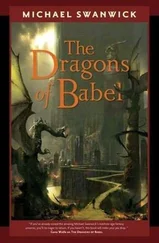Carolyn Parkhurst - The Dogs of Babel
Здесь есть возможность читать онлайн «Carolyn Parkhurst - The Dogs of Babel» весь текст электронной книги совершенно бесплатно (целиком полную версию без сокращений). В некоторых случаях можно слушать аудио, скачать через торрент в формате fb2 и присутствует краткое содержание. Город: New York, Год выпуска: 2003, ISBN: 2003, Издательство: Little, Brown and Company, Жанр: Детектив, на английском языке. Описание произведения, (предисловие) а так же отзывы посетителей доступны на портале библиотеки ЛибКат.
- Название:The Dogs of Babel
- Автор:
- Издательство:Little, Brown and Company
- Жанр:
- Год:2003
- Город:New York
- ISBN:978-0-7595-2806-2
- Рейтинг книги:3 / 5. Голосов: 1
-
Избранное:Добавить в избранное
- Отзывы:
-
Ваша оценка:
- 60
- 1
- 2
- 3
- 4
- 5
The Dogs of Babel: краткое содержание, описание и аннотация
Предлагаем к чтению аннотацию, описание, краткое содержание или предисловие (зависит от того, что написал сам автор книги «The Dogs of Babel»). Если вы не нашли необходимую информацию о книге — напишите в комментариях, мы постараемся отыскать её.
The Dogs of Babel — читать онлайн бесплатно полную книгу (весь текст) целиком
Ниже представлен текст книги, разбитый по страницам. Система сохранения места последней прочитанной страницы, позволяет с удобством читать онлайн бесплатно книгу «The Dogs of Babel», без необходимости каждый раз заново искать на чём Вы остановились. Поставьте закладку, и сможете в любой момент перейти на страницу, на которой закончили чтение.
Интервал:
Закладка:
I scanned the menu. “Well,” I said, “there aren’t exactly any appetizers, but there’s a whole list of side dishes.”
“That’s good,” she said. “It’s kind of a paradox, isn’t it? What is a side dish if it’s not served on the side of anything? Does it become something else?”
“It’s a regular Zen koan,” I said. “I think I need some coffee before I can tackle that one.”
We had a crazy meal, grapefruit sections and sausages, bananas sliced in cream and pieces of rye toast. On our way out, we bought a map; we were about two hundred eighty miles from Orlando. I was amazed to see how far we had already come.
All through that day with Lexy, that sleepy, sunny day, I couldn’t seem to stop talking. The miracle of it is still so fresh in my mind, the strangeness she brought into my life almost from the moment we met. I felt as if, after a lifetime of listening, of parsing sentences and analyzing word choices without ever opening my mouth, I was having a conversation for the first time. When the day grew hotter and Lexy closed her eyes and slept in the light of the sun coming through the windshield, my mind was quick with questions I wanted to ask and stories I wanted to tell, and when we switched places and I slept for a while, I awoke with new words on my lips. By the time we reached Orlando, she knew most of what I had to say. She knew that I had grown up in New Hampshire, where my father worked in a slaughterhouse and came home smelling of blood. She knew that I spent a summer working in a mattress factory, where I once saw a man jump down the elevator shaft looking for a lost pencil, catch an elevator on his back, and live. I told her the name of the first girl I ever kissed. I told her things I hadn’t thought about in years.
Somehow, the subject of dreams came up. Lexy told me that she had kept a book of her dreams by her bed since she was a child and that she wrote each new one down as soon as she awoke. She sometimes thought, she said, that to read this book was to know everything about her, all of her fears and strange wishes, all of the places she could not go when she was awake. One night, when she was no more than four or five, she told me, she met a king who yelled at her for hiding behind his throne. Another night, when she was twelve, she found herself naked at one of her mother’s dinner parties. She told me her dreams, the most vivid ones, the ones that still came back on occasion and made her catch her breath, in a list, offering me her life in small pieces. She crawled through a basement on her hands and knees. She saw a horse cut apart until it was no more than a pile of bloody pieces, but still it lived and breathed and looked at her with one wide eye. She gave birth to a baby, but there had been no father. She fell from a great height. Her name changed from day to day. She planted a garden in her bed and awoke to find lush roses and daisies and ivy tendrils wrapped snug around her body. She wandered through a mansion, and her mouth was filled with broken glass. She swam underwater all the way to England without having to take a breath. Her arms grew long and her legs grew short. She visited an ice cream shop and ordered a flavor called Fury. The ice cream was greenish-red, cold and strong and meaty; even now, she could remember its taste. She told me how, once, her teeth had fallen out one by one, and how, another time, she had had the strength to lift a man over her head. She got married in a cathedral whose walls collapsed before she could meet her groom. Wild dogs chased her through a field. A horrible rash covered her from head to toe. She walked barefoot through the streets and grass sprang up before her. She was being chased but could not move. A swarm of butterflies landed all over her body.
The day was warm, and we drove with the windows open. Breeze on my arms as I drove. Savor it now, the day, the breeze. Run the memory of it over your tongue. Speak it aloud; there’s no one listening. Say “sun” and “hot” and “day.” Close your eyes and remember the moment, the warm pink life of it. Lexy’s body in the seat next to mine. Her voice filling the car. Let it wash over you. It ends soon enough.
EIGHT
Ihave heard that sometimes when a person has an operation to transplant someone else’s heart or liver or kidney into his body, his tastes in foods change, or his favorite colors, as if the organ has brought with it some memory of its life before, as if it holds within it a whole past that must find a place within its new host. This is the way I carry Lexy inside me. Since the moment she took up residency within me, she has lent her own color to the way I see and hear and taste, so that by now I can barely distinguish between the world as it seemed before and the way it seems now. I cannot say what air tasted like before I knew her or how the city smelled as I walked its streets at night. I have only one tongue in my head and one pair of eyes, and I stopped being able to trust them a long time ago. There’s nothing new I can say about Disney World, nothing you haven’t already heard or seen for yourself. All I can tell you is that I was there with Lexy.
We pulled into the parking lot of the Magic Kingdom about four-thirty that afternoon. I had suggested we find a hotel before making our way to the park—this was a popular vacation week, and I was a little worried about finding a place that had vacancies—but Lexy insisted.
“This is the best time,” she said. “All the kids who have been here all day are getting cranky and leaving to take naps and have dinner. The lines are much shorter, and it’s starting to get cooler.”
“You’re the expert,” I said.
The closer we got to the park, the more excited she got. She talked in a rush, filling me in on all the unwritten rules she’d learned from a lifetime of Disney entertainment. “But the big rides, like Space Mountain, the ones with the really long lines, we don’t go on those until the Electric Light Parade starts.”
“Don’t we want to see the parade?” I asked.
“Not when there’s no one in line at Space Mountain.”
We parked in the Goofy lot, took the tram to the ticket gate and the monorail from the ticket gate to the park. I have to admit, I was getting excited, too.
“So where to?” I asked when we finally reached the park proper.
“It’s a Small World,” she said. “You’ll love it. It’s naive but well intentioned.”
We walked down Main Street, U.S.A., and through Cinderella’s castle to Fantasyland. Lexy took my hand and led me, half running, to the ride. The sign told us to expect a forty-five-minute wait, but Lexy told me to ignore it.
“They always tell you it’s going to take longer than it actually will. That way, you’re happy when you get there ahead of schedule.”
She was right. About twenty minutes later, we were ushered into a row of our own to wait for the next boat.
“We’re in the last row,” Lexy said. “Very romantic. If you like singing dolls, anyway.”
The boat pulled up. The people in the back row climbed out, and we slid in the other side. But the people in the seat in front of us, a couple with two small girls, stayed put. The man stood and leaned toward the ride operator, a clean-cut teenager in a Venetian gondolier outfit.
“Excuse me,” he said in a serious, man-to-man voice. “I wonder if you could let us go through again. The little girl in front of us was yelling so loud we couldn’t even hear the music.”
The gondolier shook his head and said something I couldn’t hear. In front of us, the woman started to get up and gather her things, but her husband waved her back.
“Please,” he said to the gondolier. It wasn’t a question. “We weren’t able to enjoy the ride. It would mean a lot.”
Читать дальшеИнтервал:
Закладка:
Похожие книги на «The Dogs of Babel»
Представляем Вашему вниманию похожие книги на «The Dogs of Babel» списком для выбора. Мы отобрали схожую по названию и смыслу литературу в надежде предоставить читателям больше вариантов отыскать новые, интересные, ещё непрочитанные произведения.
Обсуждение, отзывы о книге «The Dogs of Babel» и просто собственные мнения читателей. Оставьте ваши комментарии, напишите, что Вы думаете о произведении, его смысле или главных героях. Укажите что конкретно понравилось, а что нет, и почему Вы так считаете.












